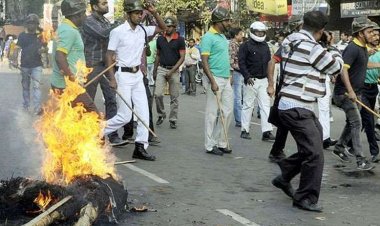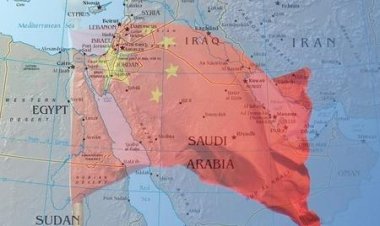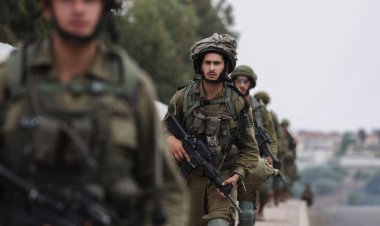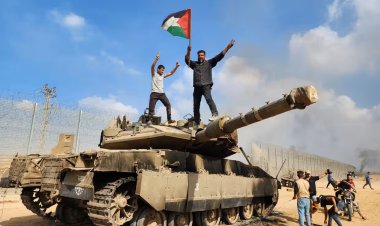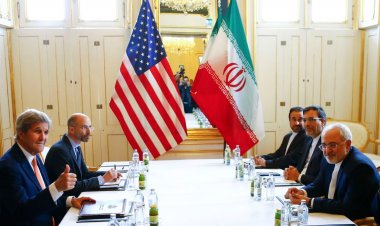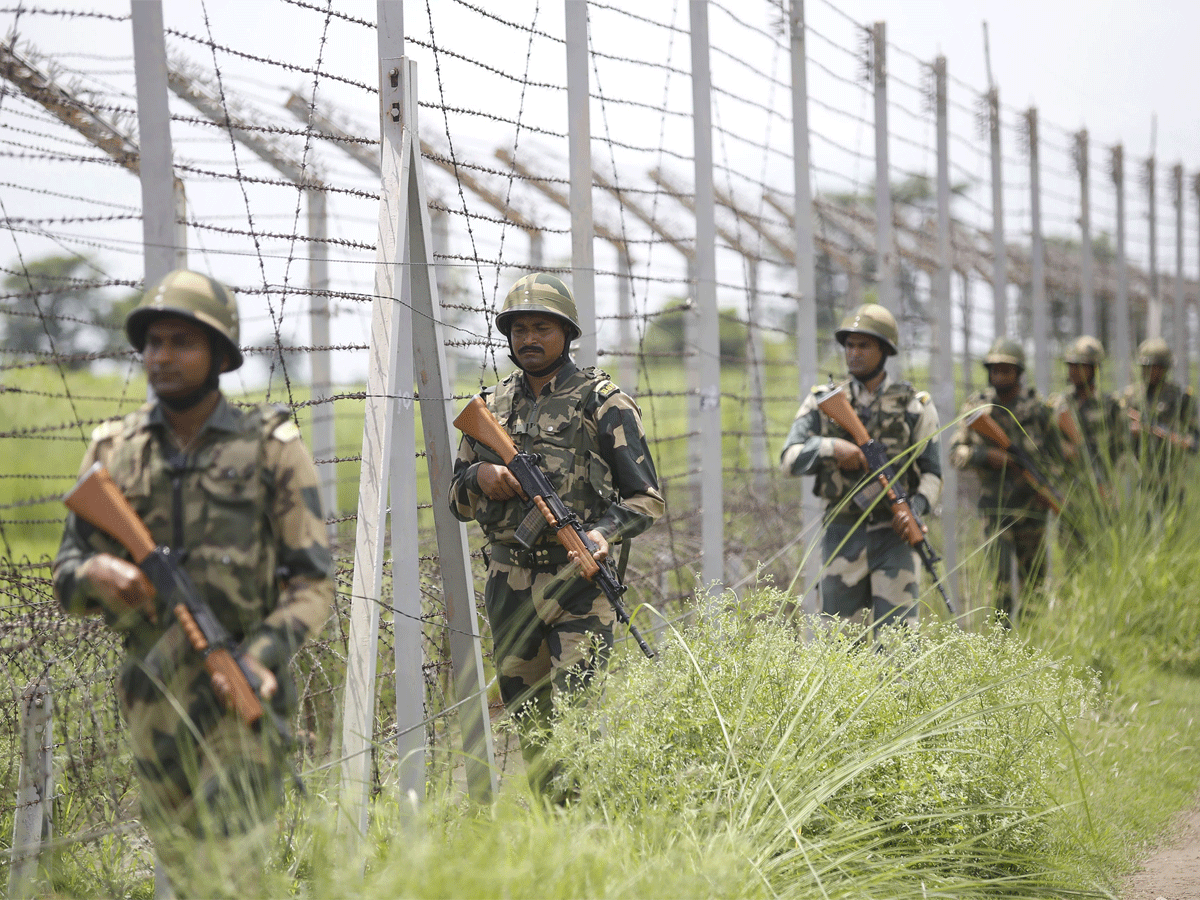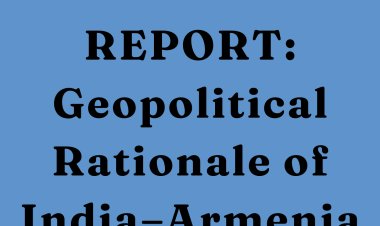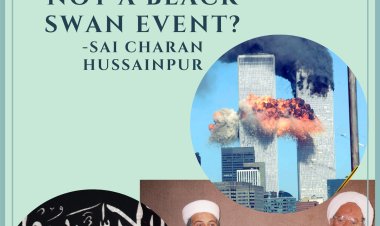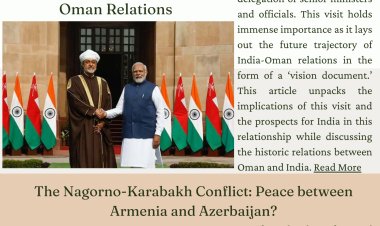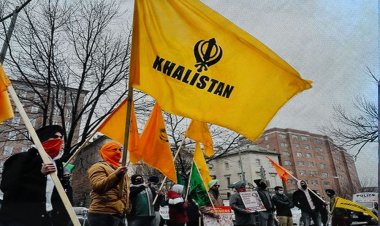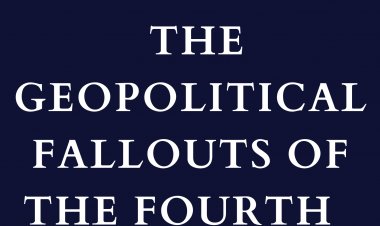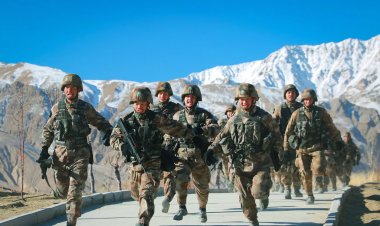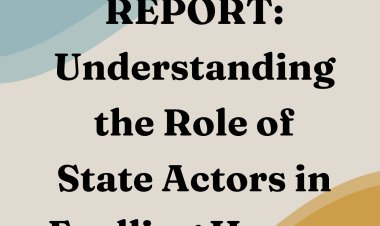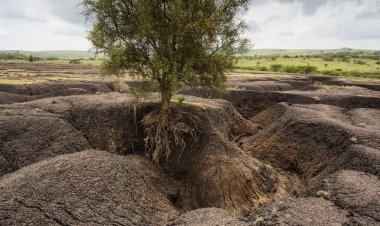The Politics of Genocide
History is replete with acts of genocide. Some were accounted for and chastised. Others went scot-free leaving an indelible scar on the human psyche for centuries to come, shaming humanity and bystanders of such horrific acts of mindless vengeance.
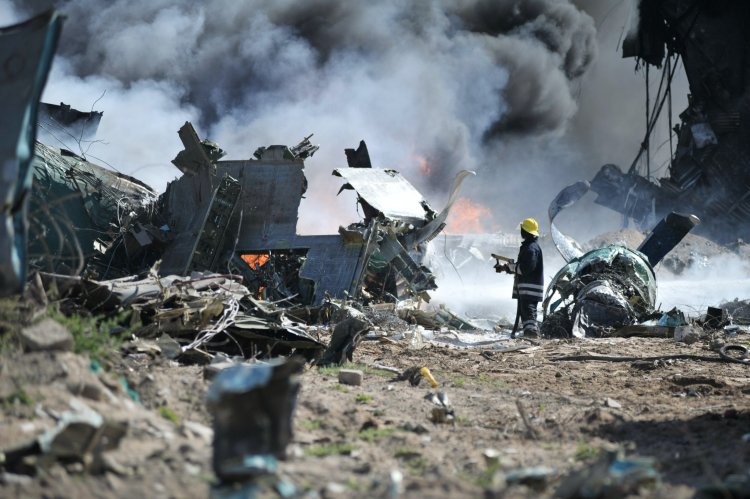
Analysis
By Ambassador Anil Trigunayat
History is replete with acts of genocide. Some were accounted for and chastised. Others went scot-free leaving an indelible scar on the human psyche for centuries to come, shaming humanity and bystanders of such horrific acts of mindless vengeance. Britannica defines Genocide as "the deliberate and systematic destruction of a group of people because of their ethnicity, nationality, religion, or race." It was coined by Polish Lawyer Raphael Lamkin in 1944 in his book Axis Rule in Occupied Europe. UNGA recognised it as a crime under international law in 1946 and it was codified as an independent crime in the 1948 Convention on the Prevention and Punishment of the Crime of Genocide. However, Ethnic Cleansing, even though in vogue since the 1990s during the former Yugoslavia conflict, has still not been recognised as an independent crime under International Law. But they remain a marker for ensuring human dignity and accountability of the psychopathic autocrats and their partners in crime. There is no dearth of such horrific incidents of death and destruction termed as crimes against humanity. However, what is not very intriguing is the politics of genocide that continues unabated.
Some of the genocides have shaken the foundations of humanity which include The holocaust of Jews by Nazis; Serbians; Bangladeshis under Pakistani military leadership; Rwandans; and the Armenian genocide. Often the guilt of inaction against one such crime may provoke excessive and intemperate action against some other perceived crimes. US leadership especially under Clintons felt ashamed of complete disregard during the Rwandan genocide (1994) when 5-600,000 Tutsis and some moderate Hutus were killed by armed militias. The trigger was the shooting down of a plane of Rwandan President Habyarimana and Burundi's President Ntaryamira over Kigali. French was accused of complicity for the 100 days of slaughter. Twenty-seven years later, a report commissioned by the Rwandan Government that the French government was "neither blind nor unconscious" in regard to the imminent genocide, yet continued in its "unwavering support" for the government of the Rwandan president then, Juvénal Habyarimana. It accused the government of the French president at the time, François Mitterrand, of doing so in order to advance and reinforce its influence and interests in the country. Hence, one of the reasons for Libyan intervention to remove Gaddafi was adduced as impending genocide by the French to convince the Americans to go along and the Responsibility to Protect (R2P) was invoked. Unfortunately, politicians also use the word genocide rather loosely and irresponsibly to create panic and hatred among communities for myopic political gains.
Armenian Genocide is back on the board again with attendant controversies as President Biden decided on April 24 ( Armenian Genocide Day) to finally and formally recognise it after more than a century of the massacre . It implies the formal acceptance that the systematic massacres and forced deportation of Armenians committed by the Ottoman Empire from 1915 to 1923, during and after the First World War, constituted genocide. Of course the Armenians, especially, in the US were elated and grateful to Biden who had the guts to recognise it. California hosts the largest number of Armenians, who have been lobbying forever for this recognition, which may not reduce their pain but may provide them some emotional succour, at least symbolically. For President Biden, it was in keeping with his declared commitment to human rights and fits well into his current efforts to heal the divide in the USA. Several of his predecessors had avoided taking the path in view of close relations between Ankara and Washington DC and the fact that Turkey is also an important NATO ally. Reagan and Obama had referred to the Armenian genocide but did not go through even though despite Trump's unwillingness both US Congress and Senate had extended their recognition in 2019. Geopolitics had its dynamic.
Even though President Biden and the US officials had informed Turkey about his intent of recognising the 106th anniversary of the Armenian genocide perpetrated by the Ottoman Empire in its dying years, Turkey was not pleased. It maintained that none of the conditions prescribed in international law would qualify the 1915 events to be called genocide. It even threatened a negative impact on bilateral relations and regional peace and stability. These have been the key levers for earlier inaction. Rejecting the US Statement, the Turkish Foreign Ministry called it a grave mistake "After more than a hundred years of this past suffering, instead of exerting sincere efforts to completely heal the wounds of the past and build the future together in our region, the US President's statement will not yield any results other than polarizing the nations and hindering peace and stability in our region. This statement of the US, which distorts the historical facts, will never be accepted in the conscience of the Turkish people and will open a deep wound that undermines our mutual trust and friendship. We call on the US President to correct this grave mistake, which serves no purpose other than to satisfy certain political circles and to support the efforts aiming to establish a practice of peaceful coexistence in the region, especially among the Turkish and Armenian nations, instead of serving the agenda of those circles that try to foment enmity from history." In a message to the Armenian Patriarchate, President Erdogan recalled and commemorated the cherished memories of the individuals from all the Muslim, Christian and Jewish communities of the Ottoman Empire, who lost their lives under the extraordinary conditions of the period before and during the First World War.
There is another theatre of conflict in Nagorno Karabakh where recent conflagration led to the defeat of Armenians and the country has been suffering from humiliation and internal troubles and disturbances blaming it all on the Government. There have been demands for the resignation of Prime Minister Nikol Pashinyan who called it an important day for all Armenians and expressed his gratitude in a letter to President Biden "I highly appreciate your principled position, which is a powerful step on the way to acknowledging the truth, historical justice, and an invaluable support for the descendants of the victims of the Armenian Genocide." The day after the US recognition, he resigned, calling for snap polls hoping to encash on this emotional ride.
Relations between Turkey and the US have come under stress as President Erdogan has been accused of reviving Islamic leadership and neo-Ottomanism through his militarisation of foreign policy and occasional interventions which have been at odds with its obligations under the membership of NATO. It stands opposed to various European countries in the Mediterranean, Libya and elsewhere. Turkey's insistence on the acquisition of S-400 Triumf systems from Russia remains its Achilles's heel. Hence, the decision of the US President while may be targeted at correcting a historic wrong, it surely seeks to contain the Turkish ambitions. It was a conscious decision even if it led to further deterioration of US-Turkey ties unless Ankara takes a more pragmatic view. Moreover, if Erdogan wishes to revive Ottomanism- the baggage will have to be carried along too. Bear the burden of the glorious or inglorious past. For now, Turkey maintains "We have nothing to learn from anybody of our past. Political opportunism is the greatest betrayal to peace and justice" according to Foreign Minister Mavlut Casuglu. But the fact remains if you want to carry the Crown you have to carry the Cross too.
Ambassador Anil Trigunayat is a former Indian Ambassador to Libya, Jordan and Malta and a commentator on the Middle East and Africa. He is also the Governing Council member at the Usanas Foundation and a Distinguished Fellow at Vivekananda International Foundation.
Disclaimer: This article is the author's individual scholastic contribution and does not necessarily reflect the organisation's viewpoint.

